Films with theme "La colonisation française", sorted by revenue
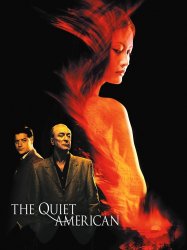
The Quiet American (2002)
, 1h41Directed by Phillip Noyce
Origin USA
Genres Drama, War, Thriller, Action, Romance
Themes French war films, La colonisation française, Films about writers, Films about journalists, Politique, La guerre d'Indochine, Political films, Histoire de France
Actors Michael Caine, Brendan Fraser, Đỗ Thị Hải Yến, Rade Šerbedžija, Tzi Ma, Holmes Osborne
Set in 1952 in Saigon, Vietnam, toward the end of the French war against the Democratic Republic of Vietnam (1945-1954), on one level The Quiet American is a love story about the triangle that develops between Thomas Fowler, a British journalist in his fifties; a young American idealist, supposedly an aid worker, named Alden Pyle; and Phuong, a Vietnamese woman. On another level it is also about the growing American involvement that led to the full-scale American war in Vietnam.
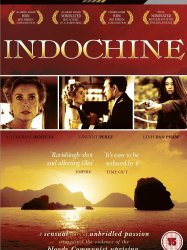
Indochine (1992)
, 2h32Directed by Régis Wargnier, Emmanuel Hamon, Philippe Charigot, Thierry Binisti, Jacques Cluzaud
Origin Vietnam
Genres Drama, Romance
Themes French war films, La colonisation française, Politique, La guerre d'Indochine, Political films, Histoire de France
Actors Catherine Deneuve, Vincent Pérez, Linh-Dan Pham, Jean Yanne, Dominique Blanc, Alain Fromager
In 1930 marked by growing anti-colonial unrest, Éliane Devries (Catherine Deneuve), a single woman born to French parents in colonial Indochina, runs her and her widowed father's (Henri Marteau) large rubber plantation with many indentured laborers, whom she casually refers to as her coolies, and divides her days between her homes at the plantation and outside Saigon. After her best friends from the Nguyễn Dynasty die in a plane crash, she adopts their five-year-old daughter Camille (Ba Hoang, as child). Guy Asselin (Jean Yanne), the head of the French security services in Indochina, courts Éliane, but she rejects him and raises Camille alone giving her the education of a privileged European through her teens.

Days of Glory (2006)
, 2h8Directed by Rachid Bouchareb
Origin Algerie
Genres Drama, War, Fantastic, Historical
Themes Films set in Africa, French war films, La colonisation française, La provence, Political films, Histoire de France
Actors Jamel Debbouze, Samy Naceri, Sami Bouajila, Roschdy Zem, Bernard Blancan, Mathieu Simonet
The film begins in North Africa where large numbers of indigènes (French Algerian Tirailleurs as well as Tunisian or Moroccan Goumiers) have been recruited into the French First Army of the Free French Forces, that has been formed to liberate France of the Nazi occupation in World War II.
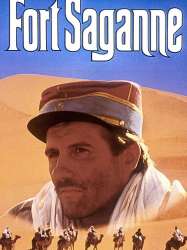
Fort Saganne (1984)
, 3hDirected by Alain Corneau, Samuel Bronston
Origin France
Genres Drama, War, Historical
Themes French war films, La colonisation française, Political films, Le désert, Histoire de France
Actors Gérard Depardieu, Philippe Noiret, Catherine Deneuve, Sophie Marceau, Michel Duchaussoy, Roger Dumas
In 1911, a willful and determined man from peasant stock named Charles Saganne (Gérard Depardieu) enlists in the military and is assigned to the Sahara Desert under the aristocratic Colonel Dubreuilh (Philippe Noiret). Saganne attracts the attentions of Madeleine (Sophie Marceau), the daughter of the regional administrator. In the Sahara, Saganne earns the respect of the Arabs, including Amajan, an independent warrior. After several campaigns, Saganne travels to Paris on a diplomatic mission. After having an affair with a journalist in Paris, Saganne returns to Africa, where he leads a valliant defense against Sultan Omar. He is awarded the Grand Cross of the Legion of Honour, and marries Madeleine. The onset of World War I puts his success and happiness at risk.

The Umbrellas of Cherbourg (1964)
, 1h31Directed by Jacques Demy
Origin France
Genres Drama, Musical theatre, Musical, Romance
Themes French war films, La colonisation française, Pregnancy films, Films about music and musicians, Algerian War films, Musical films, Histoire de France
Actors Catherine Deneuve, Nino Castelnuovo, Anne Vernon, Marc Michel, Mireille Perrey, Ellen Farner
Madame Emery and her beautiful 17-year-old daughter Geneviève (Deneuve) sell umbrellas at their tiny (and financially struggling) boutique in the coastal town of Cherbourg in Normandy, France, in the late 1950s. Guy (Castelnuovo), is a handsome young auto mechanic who lives with, and cares for, his sickly aunt, godmother Elise. Guy and Geneviève are deeply in love; they want to get married, and they want to name their first child "Francoise". Madeleine (Ellen Farner) is the quiet, shy, dedicated young caregiver who looks after Guy's aunt; Madeleine also has feelings for Guy, but has not expressed this. Suddenly Guy is drafted and must leave to become a soldier in the Algerian War. The night before Guy leaves, he and Geneviève pledge their undying love. Then they make love (apparently for the first time) and the very next day, Guy leaves.

Outside the Law (2010)
, 2h20Directed by Rachid Bouchareb
Origin Algerie
Genres Drama, War, Action, Historical
Themes Films set in Africa, French war films, La colonisation française, Films about terrorism, Algerian War films, Political films, Histoire de France
Actors Jamel Debbouze, Roschdy Zem, Sami Bouajila, Chafia Boudraa, Bernard Blancan, Samir Guesmi
À l'issue de la Seconde Guerre mondiale sur le front de l'Ouest, les manifestations pour l'indépendance de l'Algérie deviennent de plus en plus fréquentes en Algérie jusqu'aux massacres de Sétif, Guelma et Kherrata, dans le Constantinois, à partir du 8 mai 1945. Les scènes finales évoquent le massacre du 17 octobre 1961 à Paris.
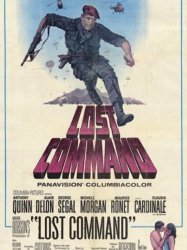
Lost Command (1966)
, 2h9Directed by Mark Robson
Origin France
Genres Drama, War, Action, Historical
Themes Films set in Africa, French war films, La colonisation française, Films about terrorism, Algerian War films, Political films, Histoire de France
Actors Anthony Quinn, Alain Delon, George Segal, Michèle Morgan, Claudia Cardinale, Maurice Ronet
In the final moments of the 1954 Battle of Dien Bien Phu, a weakened French garrison anticipates a last assault by communist Viet Minh troops.
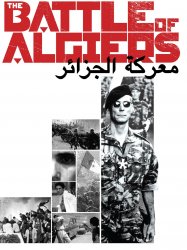
The Battle of Algiers (1966)
, 2h1Directed by Gillo Pontecorvo
Origin Algerie
Genres Drama, War, Documentary, Historical
Themes Films set in Africa, French war films, La colonisation française, Films about religion, Films about terrorism, Algerian War films, Political films, Films about Islam, Histoire de France
Actors Jean Martin, Brahim Haggiag, Rouiched, Larbi Zekkal
En 1954 à Alger, le Front de libération nationale (FLN) diffuse son premier communiqué : son but est l'indépendance nationale vis-à-vis de la France, et la restauration de l'État algérien. Ali la Pointe propose des parties de bonneteau. Repéré par la police, il s'enfuit mais se fait agresser par un passant, il réplique et se fait tabasser par le reste du groupe. Rattrapé par la police, il se fait arrêter. Emprisonné, il assiste par la fenêtre de sa cellule à l'exécution d'une peine de mort par guillotine sur un nationaliste. Le FLN le contacte.
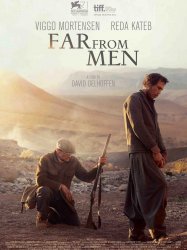
Far from Men (2015)
, 1h50Directed by David Oelhoffen
Origin France
Genres Drama, War, Western
Themes Films set in Africa, French war films, La colonisation française, Films about terrorism, Algerian War films, Political films, Histoire de France
Actors Viggo Mortensen, Reda Kateb, Nicolas Giraud, Yann Goven, Ángela Molina
En 1954, au début de la guerre d'Algérie, deux hommes, que tout oppose, sont contraints de fuir à travers les crêtes de l’Atlas saharien d'Algérie. Au cœur d’un hiver glacial, Daru, instituteur reclus, doit escorter Mohamed, un paysan accusé du meurtre de son cousin. Poursuivis par des villageois réclamant la loi du sang et par des colons revanchards, les deux hommes se révoltent. Ensemble, ils vont lutter pour retrouver leur liberté.
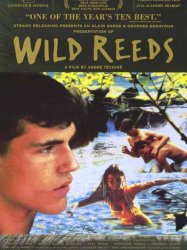
Wild Reeds (1994)
, 1h50Directed by André Téchiné
Origin France
Genres Drama, Comedy-drama, Romance
Themes L'adolescence, French war films, La colonisation française, Films about children, Films about sexuality, LGBT-related films, Algerian War films, Teen LGBT-related films, LGBT-related films, Coming out, Histoire de France, LGBT-related film
Actors Élodie Bouchez, Gaël Morel, Stéphane Rideau, Frédéric Gorny, Michèle Moretti, Jacques Nolot
The film is set in southwest France in 1962. François (Gaël Morel), a shy young man from the lower middle class, is working towards his high school diploma. He spends most of his time talking about movies and literature with his best friend, Maïté (Élodie Bouchez), whose mother Mme Alvarez (Michèle Moretti) is François's French teacher. Mme Alvarez and Maïté are communists. At the boarding school, François becomes acquainted with the sensual son of a farmer, Serge (Stéphane Rideau). At night, he joins François in the dormitory to chat. Finally, Serge draws François into an erotic relationship.
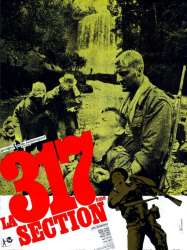
The 317th Platoon (1965)
, 1h40Directed by Pierre Schoendoerffer, Philippe Fourastié
Origin France
Genres Drama, War, Historical
Themes French war films, La colonisation française, Politique, La guerre d'Indochine, Political films, Histoire de France
Actors Jacques Perrin, Bruno Cremer, Pierre Fabre, Manuel Zarzo, Saksy Sbong
L'histoire de huit journées de guerre. En mai 1954, durant la guerre d'Indochine, la 317e section locale supplétive composée de quatre Français et de quarante-et-un Laotiens reçoit l'ordre d'abandonner le petit poste isolé de Luong Ba à la frontière du Laos, pour rallier une colonne partie au secours du camp retranché de Diên Biên Phu.

China Gate (1957)
, 1h37Directed by Samuel Fuller
Origin USA
Genres Drama, War, Thriller, Action
Themes French war films, La colonisation française, Politique, La guerre d'Indochine, Political films, Histoire de France
Actors Gene Barry, Angie Dickinson, Nat King Cole, Lee Van Cleef, George Givot, Marcel Dalio
Sergeant Brock (Gene Barry) and Goldie (Nat King Cole) are American Korean War veterans now serving as French Foreign Legion mercenaries in the First Indochina War. Angie Dickinson plays Brock's wife, a "half caste" Chinese Eurasian named "Lucky Legs" who resorts to smuggling to feed her five-year-old son she had with Brock. Brock abandoned her and the child when it was born with Asian features, feeling a "half breed" would not be welcome in America; an attitude towards miscegenation prevalent (in some quarters) at the time. Lucky is recruited by the French high command to use her knowledge to guide a demolition squad of Legionnaires led by Brock to blow up a hidden Viet Minh ammunition dump on the border with Red China. In return for her services, Lucky is promised by the French that they will arrange for her son's evacuation to America.
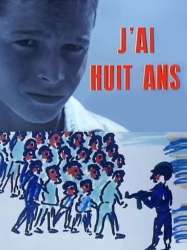
J'ai huit ans (1961)
, 10minutesDirected by René Vautier, Yann Le Masson
Origin France
Themes French war films, La colonisation française, Algerian War films, Histoire de France
Rescapés de la guerre d'Algérie et réfugiés dans des camps tunisiens, des enfants algériens témoignent, à partir de dessins qu'ils ont eux-mêmes réalisés, des événements tragiques qu'ils ont vécus. Projeté clandestinement, saisi dix-sept fois et censuré pendant douze ans, un film majeur sur la guerre d'Algérie.
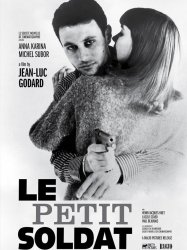
The Little Soldier (1963)
, 1h24Directed by Jean-Luc Godard
Origin France
Genres Drama, War, Historical, Crime, Romance
Themes Films set in Africa, French war films, La colonisation française, Films about terrorism, Algerian War films, Political films, Histoire de France
Actors Michel Subor, Anna Karina, Henri-Jacques Huet, Jean-Luc Godard, László Szabó, Georges de Beauregard
During the Algerian War, Bruno Forestier lives in Geneva to escape the enlistment in France. Working for French intelligence, he is ordered to kill Palivoda, who is pro-FLN (National Liberation Front of Algeria), to prove he is not a double agent. Refusal and hesitation keep him from carrying out the assassination.

A People on the March (1963)
, 55minutesDirected by René Vautier, Ahmed Rachedi, André Dumaître
Origin Algerie
Genres War, Documentary, Historical
Themes Films set in Africa, French war films, La colonisation française, Films about terrorism, Documentary films about business, Documentary films about the film industry, Documentary films about law, Documentary films about war, Documentary films about historical events, Documentary films about politics, Algerian War films, Political films, Histoire de France
In 1962, René Vautier, together with some Algerian friends, organized an audiovisual formation center to encourage a "dialogue in images" between the two factions. A film was edited from that experience, but the French police partially destroyed it. The images that were saved represent an unprecedented historical document: They tell of the Algerian War and the history of the ALN (National Liberation Army), as well as showing life after the war and, particularly, the reconstruction of the cities and the countryside after the war of Independence.
 Connection
Connection